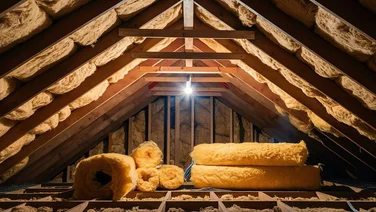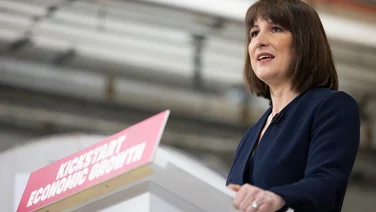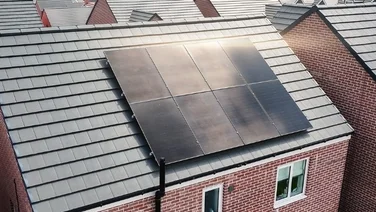- 4 in 5 Brits change behaviour at home due to energy crisis
- Almost half of Brits no longer trust energy companies
- 76% of Brits not happy with government support during energy crisis
- Only half of Brits have heard of a heat pump
- Three quarters of UK think we’re in a climate change emergency
- Half of Brits disagree with the protest tactics of Insulate Britain and Just Stop Oil
- Wales crowned the most climate-conscious part of the UK
- Over two thirds of Brits would buy a property with solar panels on
- Nearly half of Brits wouldn't want a free electric car
- 1 in 2 Brits would be happy to live next to an onshore wind farm
- 78% of Brits want the UK government to invest in more renewable energy
- Nearly half of Brits bought low-carbon technology in the past 12 months
- High energy bills prevent 43% of Brits from buying green tech
- Summary
Our biggest-ever National Home Energy Survey is live.
We’ve surveyed 2,134 adults on a massive variety of green issues, including eco-friendly technology, climate change, and protest tactics, as well as asking how the ongoing energy crisis has affected their lives.
The results show how rapidly rising costs have led Brits to radically change the way they heat and light their homes, enduring missed meals and freezing conditions to afford monthly bills.
Respondents heavily criticised the government, oil and gas companies, and energy suppliers for the parts they’ve played in this crisis, and massively supported the use of green energy and technology to combat both climate change and high energy costs.
To read the National Home Energy Survey report 2024, click here.
4 in 5 Brits change behaviour at home due to energy crisis

81% of Brits have altered their behaviour at home over the past 12 months to cut their energy bills.
And 40% strongly agreed that they’ve adjusted their behaviour, meaning they’ve probably made a large amount of changes to reduce their energy usage.
This trend held strong across all measured demographic groups, showing the far-reaching nature of the energy crisis.
54% of people have heated their home less, 37% have cut their electricity usage, and some have resorted to eating less to keep the power on.
Here’s the full article: 4 in 5 Brits change behaviour at home due to energy crisis
Almost half of Brits no longer trust energy companies

The energy crisis has massively depleted public trust in gas and electricity suppliers.
49% of Brits don’t trust energy companies – up from 34% last year.
Not only is this the biggest single shift in public trust in our survey, 49% also represents a higher level of distrust than people have for estate agents and insurance companies – combined.
A majority of people born after 1945 actively distrust energy companies, with the Silent Generation (born 1928-1945) the only age group in which more people trust energy suppliers than distrust them.
Here’s the full article: Almost half of Brits no longer trust energy companies
76% of Brits not happy with government support during energy crisis

76% of respondents said the government has not done enough to support people with the rising cost of energy bills.
This view held across all demographics. A majority of people in every single age group, income category, and geographical location agreed: the government has let us down.
Respondents criticised the government for not handing out more funding, and not using a means-tested approach to the support that was provided.
Many said the government should’ve levied high taxes on oil and gas companies to fund an increased level of support.
Here’s the full article: 76% of Brits not happy with government support during energy crisis
Only half of Brits have heard of a heat pump

Just 51% of Brits are aware of heat pumps.
That’s three percentage points down from last year’s survey, despite the government launching the Boiler Upgrade Scheme in May 2022.
In fact, a massive 73% of people didn’t know the government is offering free grants to bring down the cost of heat pump installations, showing the failing nature of that scheme.
Unfortunately, heat pumps are still too expensive for most people. 75% of respondents who bought a heat pump over the past year earn a household income over £100,000.
Here’s the full article: Only half of Brits have heard of a heat pump
Three quarters of UK think we’re in a climate change emergency

73% of people told us that we’re in a climate change emergency.
The younger someone is, the more likely they are to think this – 86% of Gen Z (born 1997-2013) do, along with 78% of Millennials (born 1981-1996).
A convincing majority of all generations agreed, with 67% of the oldest age group, the Silent Generation, saying this is a climate change emergency.
The key takeaway: we’re in a climate change emergency, and it’s not controversial to say so anymore.
Here’s the full article: Three quarters of UK think we’re in a climate change emergency
Half of Brits disagree with the protest tactics of Insulate Britain and Just Stop Oil

50% of people don’t agree with the protest tactics used by Insulate Britain and Just Stop Oil.
Over the past year, these tactics have included blocking motorway routes, disrupting the BAFTAs, football matches, and the British Grand Prix, and throwing soup at the glass protecting a Vincent van Gogh painting.
Disapproval of their tactics held across different age groups, income brackets, and regions of the UK.
Just 16% of those surveyed support the groups’ actions, though their tactics and the resultant media coverage clearly left a mark on the public’s consciousness – only 21% hadn’t heard of them.
Here’s the full article: Half of Brits disagree with the protest tactics of Insulate Britain and Just Stop Oil
Wales crowned the most climate-conscious part of the UK

People in Wales are the most climate-conscious on these shores, according to our survey.
They’re the most worried about climate change, with 53% saying they’re either extremely or very anxious – 12 percentage points above the UK average.
That could be why a higher percentage of people in Wales supported the protest tactics used by Insulate Britain and Just Stop Oil (24%) than in any other region.
Welsh respondents were the most likely in the UK to have taken measures to improve their home’s energy efficiency in the past 12 months, at 62%.
They also have the highest level of awareness about heat pumps – at 61% – and solar panels, at 85%. Part of this could be down to some of the government support on offer for green tech. For example, the Welsh government provides solar panel grants for homeowners who meet certain criteria, helping more people go green.
Here’s the full article: Wales crowned the most climate-conscious part of the UK
Over two thirds of Brits would buy a property with solar panels on

69% of Brits would now buy a home that has solar panels on its roof.
This represents a four percentage point rise on last year, showing that the popularity of domestic solar panels is growing.
And with just 8% of respondents saying they were unlikely to buy a solar-powered home, its popularity is nearly total.
Gen Z and Millennials – people born in 1981 or later – are especially enthusiastic, with 74% of these groups saying they’d be likely or very likely to buy a property with solar panels.
And 74% of people in Wales and the east of England felt positive about having solar panels on their home – the highest levels of any region.
Here’s the full article: Over two thirds of Brits would buy a property with solar panels on
Nearly half of Brits wouldn’t want a free electric car

46% of people wouldn’t get an electric car if money was no object.
Only 51% of people would want solar panels, and just 24% of people would get a heat pump.
However, 86% of respondents said they’d get at least one piece of low-carbon technology, showing enthusiasm for bill-cutting, planet-saving products is high generally – and that figure rises to 91% among Gen Z.
It’s also clear how a lack of money blocks green purchases. 54% of people would ideally get an electric car – but only 16% are planning to buy one in the next 12 months.
Here’s the full article: Nearly half of Brits wouldn’t want a free electric car
1 in 2 Brits would be happy to live next to an onshore wind farm

49% of people would buy or rent a property that was close to an onshore wind farm.
Only 20% said they wouldn’t do so, showing that Brits are much more tolerant of the idea of living next to a wind farm than politicians have told us.
It looks like the public would be receptive to an overturn of the government’s eight-year-long onshore wind ban.
However, not everyone is willing for green solutions to directly affect their lives, with 18% who believe there’s a climate change emergency saying they wouldn’t live near a wind farm.
Here’s the full article: 1 in 2 Brits would be happy to live next to an onshore wind farm
78% of Brits want the UK government to invest in more renewable energy

When asked which energy option the UK government should be investing in, the public overwhelmingly pointed to renewable power.
78% of respondents want the government to fund renewable sources – namely solar, wind, nuclear, or hydrogen.
Support for green energy is highest among Gen Z, but doesn’t drop below 75% in any age group.
Overall, just 14% want to see more investment in oil, gas, and coal, showing that people know the future is green.
Here’s the full article: 78% of Brits want the UK government to invest in more renewable energy
Nearly half of Brits bought low-carbon technology in the past 12 months

47% of people have attained at least one piece of low-carbon technology in the past 12 months – an eight percentage point rise on last year’s survey.
The most popular products were smart meters and smart appliances – acquired by 25% and 22% respectively – likely because they’re relatively affordable options.
On the flip side, just 1% have bought infrared panels, and 2% have purchased heat pumps, due to both the upfront cost and a lack of publicity.
The younger the respondent, the more likely they were to purchase green technology. 64% of Gen Z respondents bought a low-carbon product, whereas only 25% of the Silent Generation have.
Here’s the full article: Nearly half of Brits bought low-carbon technology in the past 12 months
High energy bills prevent 43% of Brits from buying green tech

43% of Brits said rising energy prices and monetary constraints made them less likely to consider purchasing low-carbon technologies this year.
And just 16% said the ongoing energy and cost of living crises hadn’t had this effect on them.
The crises had the biggest impact on households earning between £40,000 and £150,000, because lower income groups aren’t able to afford green products like heat pumps anyway, and wealthier households aren’t as desperate to cut their costs.
Here’s the full article: High energy bills prevent 43% of Brits from buying green tech
Summary
Our 2023 National Home Energy Survey highlights several important trends that shaped the past 12 months, as the UK’s rapidly rising cost of living was exacerbated by an ongoing energy crisis.
Brits are struggling, with many forced to choose between eating and heating on a daily basis.
The public wants the government to help out by lowering their energy bills, subsidising low-carbon technology, and investing in renewable energy sources.
To see how these results compare with last year’s survey, check out our National Home Energy Survey 2022.







